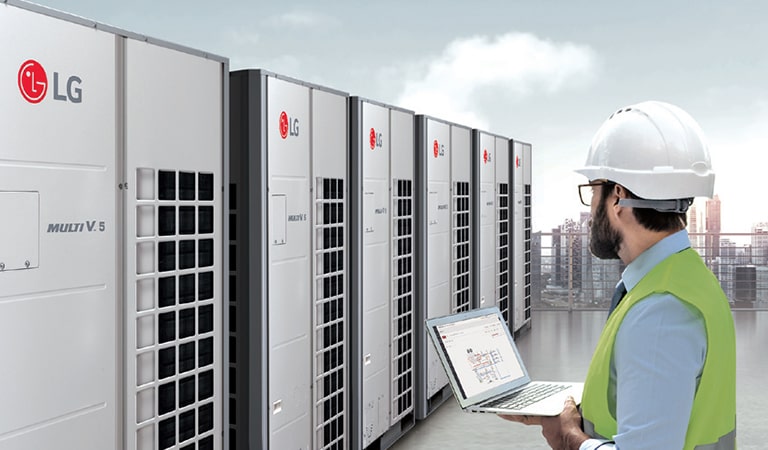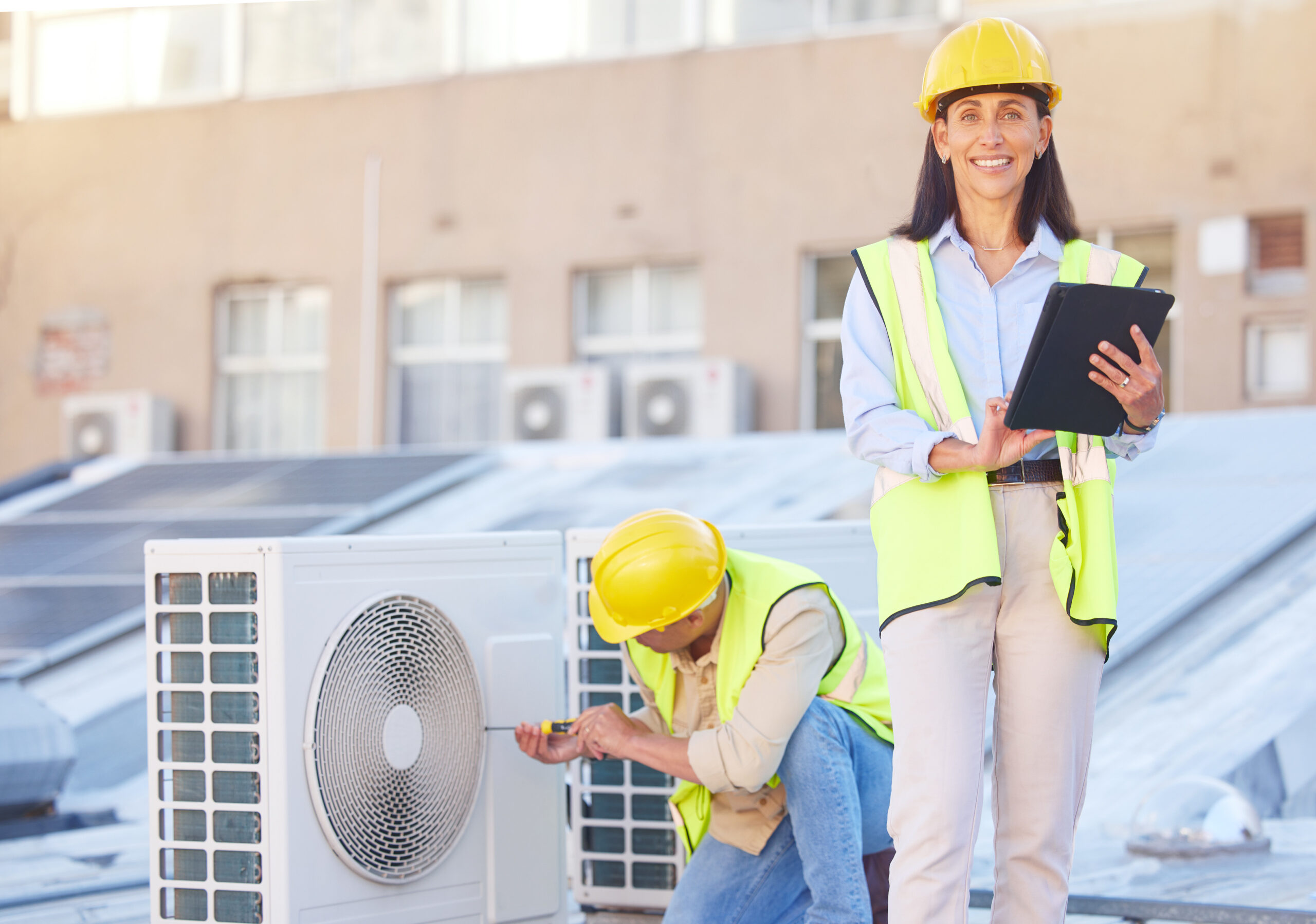What You Need to Know About heat pump replacement ooltewah tn
What You Need to Know About heat pump replacement ooltewah tn
Blog Article
Choosing In Between a Warmth Pump and Furnace: Secret Factors To Consider for Your A/c Demands
When assessing heating alternatives for cooling and heating requires, the choice between a heatpump and a furnace can be complex. Each system supplies unique advantages customized to details climates and power performance goals. Understanding these distinctions is important for making an enlightened option. Key aspects such as setup prices and ecological effect even more complicate the option process. Which option really aligns with one's comfort and sustainability preferences? The complying with areas will discover these factors to consider in information.
Comprehending Warmth Pumps: Exactly How They Function and Their Benefits
While numerous property owners consider various home heating choices, comprehending just how warm pumps feature and their advantages can substantially influence their decision. Warmth pumps operate by transferring warmth as opposed to producing it. In the winter, they draw out warmth from the outside air or ground and transfer it inside your home, while in the summer season, they reverse this process, cooling the home by eliminating heat outside. This dual performance makes them functional for year-round climate control.One of the primary benefits of warm pumps is their power performance. They use significantly much less power compared to conventional furnace, possibly causing reduced energy bills (heat pump replacement ooltewah tn). In addition, heatpump have a smaller carbon footprint, making them an eco-friendly option. They likewise call for much less upkeep than traditional systems, adding to lasting expense financial savings. Overall, understanding the auto mechanics and advantages of warm pumps can assist house owners make educated choices concerning their heating and cooling needs
Checking Out Furnaces: Types, Operation, and Benefits
Heaters can be found in numerous types, including gas, electric, and oil versions, each with distinct operational devices. Recognizing these distinctions is necessary, as they affect effectiveness and heating performance. Additionally, furnaces supply countless advantages, such as consistent heat result and integrity in chillier environments.
Kinds of Heating systems
Heating unit can differ significantly in design and operation, with furnaces being a prominent option amongst home owners. There are numerous kinds of heaters, each making use of different gas resources and innovations. Gas furnaces are usual, leveraging gas to produce warmth effectively. Electric furnaces, on the other hand, utilize electrical resistance to generate warmth, frequently preferred for their simple installation. Oil heating systems, while less typical, work in areas with minimal gas gain access to (furnace replacement). Additionally, condensing heating systems take full advantage of energy effectiveness by recording and reusing exhaust gases. Each kind runs with a system of warmth exchangers and ductwork to distribute cozy air throughout a home. Recognizing the distinctions between these heating system kinds is essential for educated a/c decisions
Benefits of Heating systems
For home owners seeking trustworthy heat during chilly months, the benefits of heaters are significant. Heating systems give consistent home heating, ensuring also temperatures throughout the home. They are specifically efficient in severe cold, usually exceeding heatpump in cold conditions. Various types, including gas, electric, and oil heating systems, supply adaptability to meet diverse needs and preferences.Furnaces likewise have a tendency to have lower first installation expenses compared to heatpump, making them a much more obtainable alternative for several. Their durable layout adds to a much longer life expectancy, with lots of systems lasting over 15 years with appropriate maintenance. In addition, modern-day heaters are usually geared up with sophisticated innovation for enhanced efficiency, which can lead to lowered energy expenses. Overall, heating systems stay a trustworthy selection for effective home heating.

Power Effectiveness: Comparing Heat Pumps and Furnaces
When comparing power performance between warmth pumps and furnaces, the Seasonal Energy Performance Ratio (SEER) plays a necessary duty in identifying efficiency. In addition, an operational expense evaluation discloses the long-term financial ramifications of each system. Recognizing these factors can direct home owners in making informed decisions regarding their home heating services.
Seasonal Energy Effectiveness Proportion
Power performance plays an important function in the decision-making process in between heatpump and heaters, particularly when considering the Seasonal Energy Efficiency Ratio (SEER) This statistics measures the cooling effectiveness of heatpump over a whole cooling period, offering a standardized way to examine efficiency. Greater SEER scores indicate greater energy efficiency, equating to reduced energy intake and lowered energy expenses. On the other hand, heaters are normally analyzed making use of the Annual Fuel Application Performance (AFUE) ranking, which mirrors home heating effectiveness. When comparing these two systems, property owners ought to prioritize SEER rankings for heatpump, as they directly impact general power cost savings and environmental sustainability. A detailed understanding of SEER can especially affect the long-lasting contentment and cost-effectiveness of the chosen heating and cooling service.
Functional Price Evaluation
Comprehending the functional expenses related to heatpump and furnaces is vital for homeowners assessing their alternatives. Warm pumps normally use higher power performance, transforming electrical energy right into warm with minimal waste. This causes lower month-to-month utility bills, especially in modest climates. Alternatively, conventional furnaces, especially gas models, may have reduced in advance costs however can sustain higher functional expenses in time as a result of fuel rates and performance ratings.Moreover, warm pumps can work as both heating and cooling systems, potentially decreasing the requirement for separate HVAC devices. While preliminary financial investments for heatpump might be greater, their lasting savings in energy efficiency can make them an extra affordable option for several homes. Mindful evaluation of local power prices is necessary to determine the most effective alternative.
Installment Costs: What to Anticipate for every Heater
Setup costs for furnace can differ considerably between warm pumps and heating systems, affecting homeowners' decisions. Heat pumps typically have higher ahead of time setup prices, generally ranging from $3,500 to $8,000, depending upon the system size and complexity of setup. This includes the exterior device, indoor handling system, and necessary ductwork modifications. On the other hand, heating systems have a tendency to have reduced initial prices, balancing in between $2,500 and $6,000, which can be appealing for budget-conscious home owners. Installment expenditures can increase if comprehensive ductwork is required.Moreover, the choice of gas kind for heating systems-- natural gas, gas, or electric-- can also affect installation expenses. While heatpump offer power effectiveness, their initial financial investment may deter some customers. Eventually, assessing installation expenses alongside lasting cost savings and performance will assist home owners in making notified decisions regarding their heating systems.
Environment Considerations: Which System Executes Better in Your Location
Exactly how do environment conditions affect the efficiency of furnace? The efficiency of heatpump and heaters can vary substantially depending upon the neighborhood climate. In modest environments, heatpump succeed by successfully moving warmth from the outdoors great post to read air, making them an energy-saving alternative. However, their efficiency lessens in very chilly temperatures, where they might have a hard time to remove sufficient warmth. Conversely, heaters, particularly gas designs, give trustworthy and regular warmth no matter outdoor conditions, making them more effective in cooler regions.In locations that experience milder winters, heat pumps can operate efficiently year-round, supplying both home heating and air conditioning. In comparison, areas with severe winter seasons often benefit from the toughness of heating systems. Inevitably, recognizing the local climate is vital when determining between a warmth pump and a heating system, as it straight affects their operational performance and total efficiency.
Upkeep Demands: Long-Term Look After Warm Pumps vs. Furnaces
While both heatpump and furnaces call for routine upkeep to ensure peak performance, their specific demands and care regimens differ considerably. Heaters commonly require less regular attention, with yearly assessments sufficing to check for gas leaks, clean filters, and assess total functionality. Their less complex style often permits straightforward repairs.In comparison, heatpump necessitate semiannual maintenance because of their dual function in heating & cooling. This consists of cleaning coils, inspecting cooling agent levels, and making sure that both the exterior and indoor systems click here for more info function at their finest. In addition, heat pump upkeep often involves more complex parts, making specialist maintenance essential.Neglecting maintenance can cause lessened efficiency and boosted power prices for both systems. Ultimately, property owners need to take into consideration these long-lasting treatment needs when choosing between a warmth pump and a heater, as aggressive maintenance can extend the life expectancy and efficiency of either system substantially.
Environmental Impact: Selecting a Lasting Home Heating Alternative
The ecological influence of heating unit is an important examination for home owners looking for lasting alternatives. Warmth pumps are generally more energy-efficient than conventional heating systems, as they transfer heat as opposed to generate it, considerably reducing carbon exhausts. By utilizing renewable resource sources, such as air-source or geothermal heatpump, property owners can even more lessen their eco-friendly footprint.On the other hand, gas furnaces emit greenhouse gases and add to air contamination, though they often provide greater heat result. Nevertheless, innovations in modern technology have resulted in the growth of high-efficiency furnaces that reduce emissions.Ultimately, choosing a heating unit entails weighing effectiveness against environmental influence. Home owners are motivated to show on regional power sources and rewards for renewable systems, making sure a choice that lines up with both personal comfort and ecological duty. The decision affects not only instant convenience however additionally long-lasting sustainability and environmental wellness.
Frequently Asked Questions
Exactly How Lengthy Do Heat Pumps and Furnaces Generally Last?
The lifespan of warmth pumps commonly ranges from 15 to two decades, while furnaces can last between 15 to three decades. read this Regular maintenance significantly affects their longevity and efficiency in giving heating solutions.
Can I Use a Heatpump in Very Cold Climates?
Warmth pumps can operate in extremely cool environments, yet their effectiveness decreases as temperature levels decline. In such problems, supplementary home heating resources may be required to preserve comfortable indoor temperature levels and assure peak performance.

What Is the Noise Level of Heat Pumps Versus Furnaces?
The noise degrees of warm pumps and furnaces differ considerably. Normally, heatpump run even more silently than typical heating systems, making them better for those delicate to seem, while heaters may produce louder operational sounds during heating cycles.
Are Warm Pumps Suitable for Both Heating & Cooling?
Heat pumps are without a doubt appropriate for both heating and air conditioning (heat pump service). They operate by transferring warm, supplying efficient temperature control year-round, making them a functional selection for house owners looking for an all-in-one a/c service
What Size Furnace Do I Need for My Home?
Identifying the ideal size furnace for a home needs examining aspects such as square video, insulation top quality, regional climate, and the home's format. Consulting an expert can ensure an exact analysis and optimal comfort. Warm pumps usually use higher energy performance, converting electric power right into warm with very little waste. In moderate environments, heat pumps succeed by effectively moving warm from the outside air, making them an energy-saving option. Conversely, heating systems, particularly gas versions, give regular and reliable heat regardless of outdoor problems, making them better in chillier regions.In locations that experience milder winters, warm pumps can operate successfully year-round, providing both heating and air conditioning. Warmth pumps are usually much more energy-efficient than conventional heating systems, as they move heat rather than create it, greatly decreasing carbon exhausts. By utilizing renewable power sources, such as geothermal or air-source warm pumps, home owners can better decrease their ecological footprint.On the various other hand, all-natural gas heaters discharge greenhouse gases and contribute to air pollution, though they commonly supply higher heat result.
Report this page